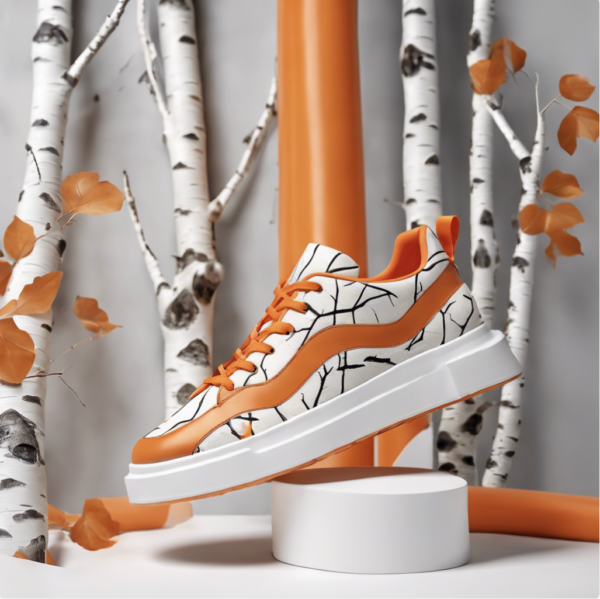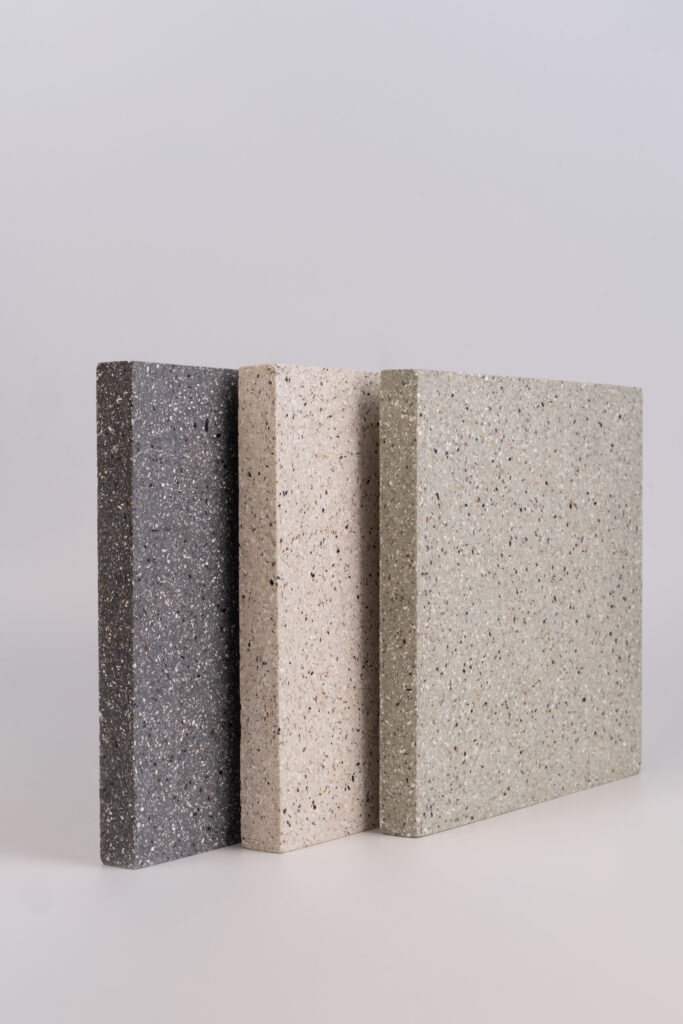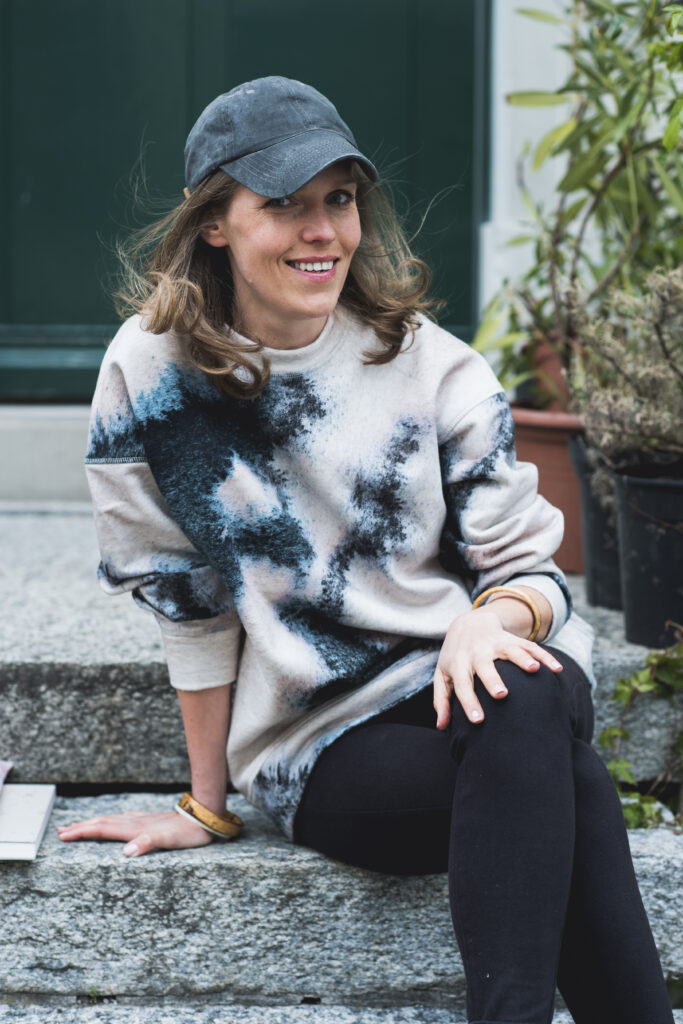 Back
Back
Fighting plastic waste with a new generation of biomaterials
looms.world’s Ksenia Starikova sourced some of the most exciting innovations in the new biomaterials space to bring to 🔥THE HEAT 2024. The festival let you get hands-on with sustainable alternatives to leather, textiles, rubber, fabric dyes, and more from 15 new-materials companies.

BY JOE ROWAN, September 12 2024
THE HEAT, VOYAGERS.io’s first-ever climate-tech festival, took place on Friday September 20 2024 at the extraordinary Harwell Science and Innovation Campus in Oxfordshire.
THE HEAT is a hands-on, practical, mind-expanding, friendship-building, exploratory, curiosity-led, science-based, creative, artistic, participatory, decentralised, experimental, edgy, live, risky, urgent and unpredictable gathering of the talented people working on climate technologies. THE HEAT is not a conference. Don’t expect dull panels or awful coffee. Instead, come to make new friends, experience science in action, learn and share your knowledge, inspire and be inspired. Bring your most engaged and curious festival mindset.
looms.world’s Ksenia Starikova sourced some of the most exciting innovations in the new biomaterials space to bring to 🔥THE HEAT 2024. The festival let you get hands-on with sustainable alternatives to leather, textiles, rubber, fabric dyes, and more from 15 new-materials companies.
We won’t combat climate change without a radical shift away from plastics and other polluting consumer and industrial materials. So at 🔥THE HEAT 2024, we gave you an opportunity to experience the best of new biomaterials and plastics-alternatives: from fish-scale-based leather substitutes to textiles made from nettles.
Our New Materials showcase, curated by looms.world’s Ksenia Starikova, offered you hands-on exposure to a wide variety of sustainable alternatives to leather, textiles, rubber, fabric dyes, and more. The 15 startups we had showcasing ranged from London-based the Tyre Collective, which captures and repurposes the microplastics produced by vehicle tyres, to Stockholm-based Reselo, turning birch-tree bark into bio-rubber. Participants had the chance to meet Ostrea Design from France, turning seashells into a stone-like mineral material used to make tables and kitchen surfaces, and Poland’s FibriTech, which uses cellulose fibres to produce a peat-free substrate for growing plants and an oil sorbent that repels water.

Starikova’s curation aimed to showcase the broad range of innovations being commercialised. “I was aiming for a diversity of technologies and of inspiration,” she says. “We also wanted to bring relatively early-stage startups to the festival to give them exposure, facilitate new conversations, and let them tell their story to a broader audience.”
The startups’ impact on their local environment was a key criterion for choosing which to invite to showcase, and there was also a focus on European innovators. “The interesting innovations in this space are the ones that truly consider what is happening around them, such as in the south of France exploring the potential of salt in interior design, as Atelier LUMA does in its research lab”.

The brands’ impact on local communities was another key reason why they were selected to showcase at THE HEAT. The textile developer Fiiba, for example, plans to bring one million farmers out of poverty by 2030 by paying for their agricultural banana waste, which it turns into yarn and fabrics for the fashion industry. “The team behind Fiiba started by creating connections with farmers in India and helping them to find a more direct way into the market, by cutting out the middleman or simplifying the supply chain process in general. This happened before they started working on fabrics, so the foundation of the brand is in the community that is being carefully curated by the founders,” Starikova says.
Starikova, 39, became interested in biomaterials while working in hospitality, including a role overseeing brand experience at Design Hotels, representing 300+ independent hotels in over 60 countries. “The hospitality world really got me thinking a lot about future opportunities, especially when it comes to the built environment. And from there I focused on what some innovations in the circular economy can mean for the future of spaces,” she says. Two years ago she founded Looms.World as an impact-focused creative studio to help established brands to become more circular and support emerging innovations along the way.

And suddenly the market is catching up. “Ten years ago, a lot of exciting lab-driven pilots were happening, but it was still pretty clear that this was experimental,” Starikova says. “In the last three to four years, that has changed drastically, and a mix of universities picking up the topic, investment coming into the space, and a new breed of designers and scientists has really accelerated the trend.”
Here is the full list of new-materials startups that showcased at THE HEAT on September 20 2024:
Ottan develops bio-based building materials upcycled from food and agricultural waste.
PACT uses collagen from fish farming to make luxury leather goods.
FibriTech uses cellulose fibres to produce a peat-free substrate for growing plants and an oil sorbent that repels water.
Faba-Forma converts bean waste into a fully degradable biomaterial that can be used to decorate public space interiors and venues as well as product design ranges such as lighting, dining sets and crockery, and is also exhibiting possible soundproofing and heat-insulating properties.
Reselo turns residues from the pulp and paper industry (birch bark) into sustainable bio-rubber.
Fiiba produces cotton and viscose replacements from agricultural banana waste, used to make luxury textiles for the fashion industry.
Arda Biomaterials transforms spent grain from beer breweries and whisky distilleries into a replacement for animal-based leather.
Nettle Circle produces eco-friendly nettle fibres that can be used for clothes, shoes, upholstery, felting, carpets, and insulation.
The Tyre Collective captures tyre wear from vehicles, which can be upcycled into industrial and consumer applications such as bitumen, shoe soles and soundproofing.
Ostrea Design produces a low-carbon and 100% recyclable mineral material made from oyster, mussel and scallop shells. It has the same properties as natural stone and is used to make tables and kitchen surfaces.
traceless uses plant leftovers from the agricultural industry to produce naturally degradable pellets that can be further processed into a wide range of end products, from paper coatings, to rigid, flexible or adhesive applications.
Atelier LUMA is a design research programme that explores the potential of materials such as invasive plants, agricultural coproducts, algae, and industrial waste. Some of its work can be seen at the Parc des Ateliers which houses LUMA Arles, such as wall cladding panels made of salt and bioplastic tiles made using algae-based dyes.
Nuatan makes products from bioplastics for a wide range of applications, including interior design, fashion accessories, housewares, and consumer electronics.
BindEthics makes food-waste-derived bio-adhesives to replace formaldehyde-based glues used to make engineered wood products such as furniture.
Kelpi uses seaweed and natural plant-based oils to make a biodegradable coating for paper, card and fibre. This provides a barrier to water, oxygen, greasy and acidic contents that could previously only be achieved by fossil-fuel plastics.